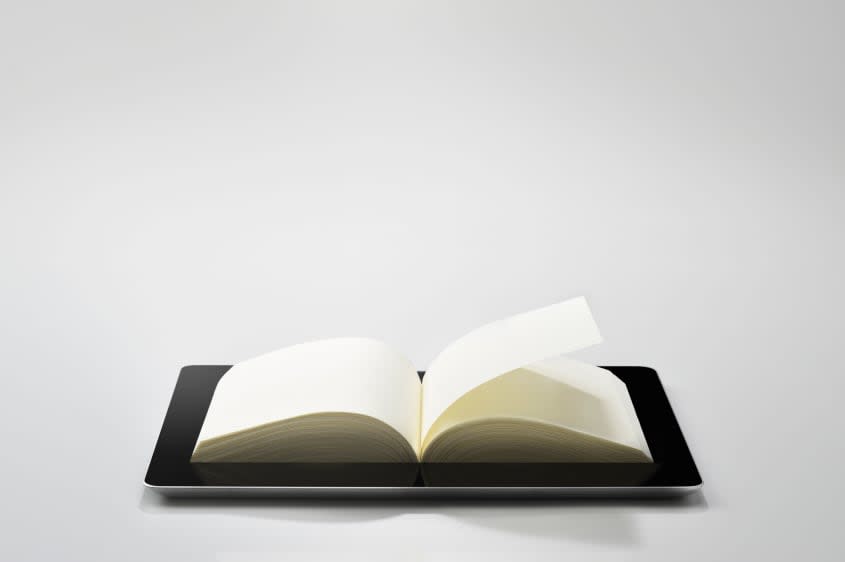Internet Archive and the complex politics of e-book lending

A judge recently ruled in favor of four major publishing companies suing the Internet Archive, a free online digital library, in a highly-watched and consequential copyright suit. The publishers — Hachette Book Group, HarperCollins, John Wiley & Sons, and Penguin Random House — filed the lawsuit against the non-profit in 2020, accusing it of copyright infringement "for loaning out digital copies of books without compensation or permission from the publishers," NPR summarizes.
The legal challenge arrived after Internet Archive offered a "National Emergency Library," a temporary collection meant to expand access to books, during the early days of the COVID-19 lockdown. Rather than loaning out one digital copy of a book in the collection for every physical copy in the archive's wider arsenal — an industry-wide practice known as controlled digital lending — IA relaxed those guardrails and allowed multiple patrons to rent out the same digitized copy at the same time. The four publishers then sued Internet Archive, alleging it had engaged in "willful mass copyright infringement" that violated publishers' intellectual property and cut into their profits. Though Internet Archive argued it was legally allowed to lend out the copies under the fair use doctrine, U.S. District Court Jude John G. Koeltl ultimately disagreed and sided with the publishers. "Although [Internet Archive] has the right to lend print books it lawfully acquired, it does not have the right to scan those books and lend the digital copies en masse," Koeltl said in his opinion.
Now that the dust has settled, how are those on both sides of the debate making sense of Koeltl's ruling and its reverberations for the publishing and literary world as a whole?
'It is theft, and it devalues authors' works'
The Authors Guild, a professional organization for published writers, said in a Twitter post that they were "thrilled" with Koeltl's decision, adding that "scanning and lending books without permission or compensation is NOT fair use — it is theft and it devalues authors' works." Authors Guild CEO Mary Rasenberger also told Wired that the ruling was a win for authors dependent on e-book licensing. "It's just extraordinary, with the rise of library e-book lending, how much income to the publishers and the authors has declined," she said.
By rejecting Internet Archive's arguments about fair use, "the court has underscored the importance of authors, publishers, and creative markets in a global society," Maria A. Pallante, president and CEO of the Association of American Publishers, said in a statement. "We hope the opinion will prove educational to the defendant and anyone else who finds public laws inconvenient to their own interests."
The judge was right to rule against Internet Archive, considering the San-Francisco-based company has a "typical Silicon Valley attitude of laws-be-damned," author and independent journalist Edward Hasbrouck told Wired. "The Internet Archive tried to force their own de facto licensing terms — free — onto us."
'A blow for libraries, readers, and authors'
Koeltl's decision will only add to the frustration of librarians over the "uneasy transition of books from paper to digital formats," Dan Cohen, the dean of the library at Northeastern University, wrote for The Atlantic. "It will impoverish readers across the country seeking access to digital books, and over time diminish the library as a democratic institution that provides broad collections to everyone."
Indeed, the company's loss here could maybe mean the end of controlled digital lending as we know it, Peter Suber, director of the Harvard Open Access Project, told Slate's Nitish Pahwa and Emma Wallenbrock in an article published last fall, before the ruling was handed down. "We will not be legally allowed to take full advantage of the affordances of the Internet for sharing literature, and that would be a tragedy," Suber said. Ultimately, Pahwa and Wallenbrock mused, "that will hurt researchers and readers alike."
And, of course, for Internet Archive's part, the ruling is "a blow for libraries, readers, and authors," the organization said in an online statement. "Libraries are more than the customer service departments for corporate database products," founder Brewster Kahle said in the statement. "For democracy to thrive at global scale, libraries must be able to sustain their historic role in society — owning, preserving, and lending books."
You may also like
The Super Mario Bros. Movie scores biggest opening ever for an animated film
5 unlawfully funny cartoons about justice
Texas governor seeks to pardon man convicted of BLM protest murder

